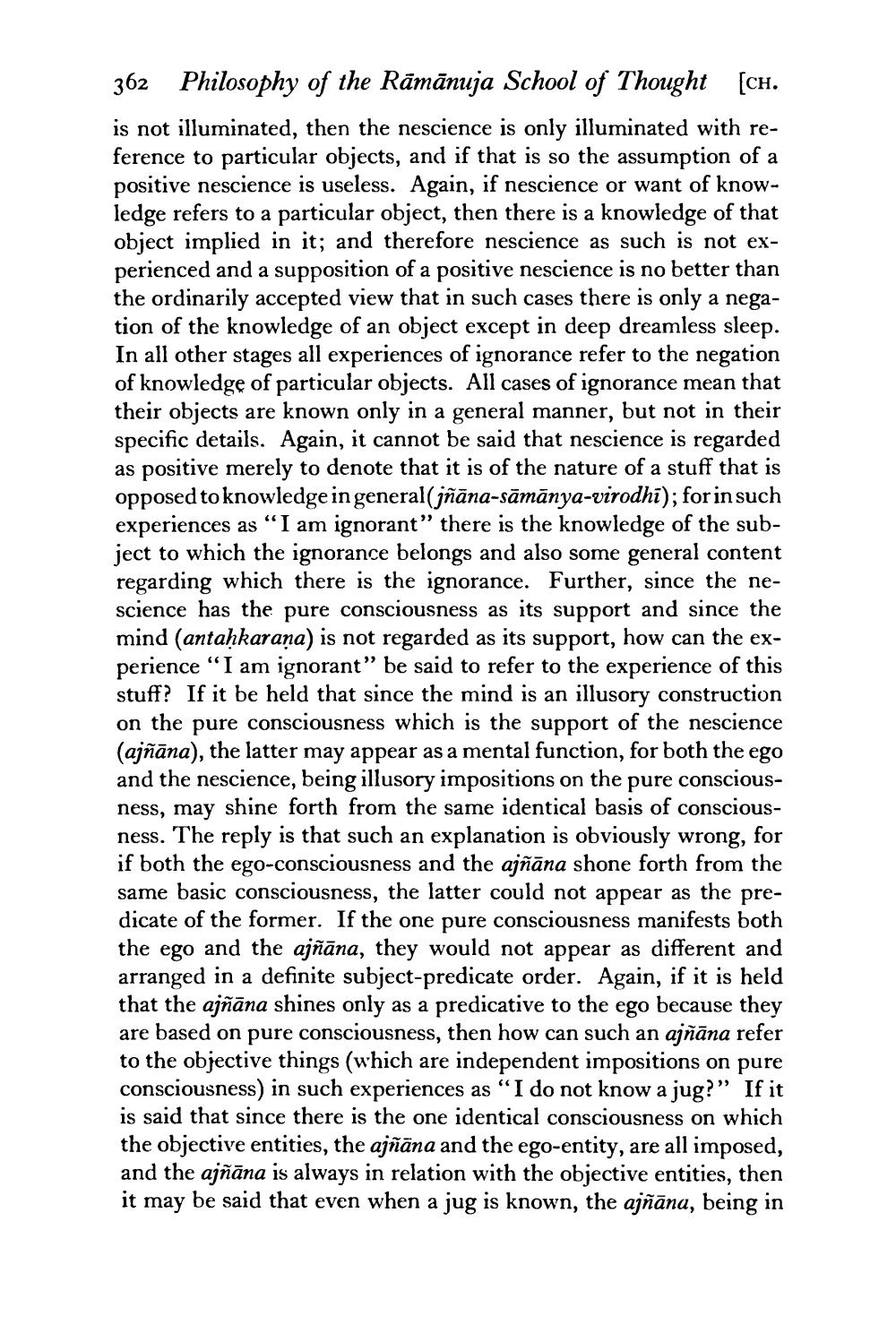________________
362 Philosophy of the Rāmānuja School of Thought [CH.
is not illuminated, then the nescience is only illuminated with reference to particular objects, and if that is so the assumption of a positive nescience is useless. Again, if nescience or want of knowledge refers to a particular object, then there is a knowledge of that object implied in it; and therefore nescience as such is not experienced and a supposition of a positive nescience is no better than the ordinarily accepted view that in such cases there is only a negation of the knowledge of an object except in deep dreamless sleep. In all other stages all experiences of ignorance refer to the negation of knowledge of particular objects. All cases of ignorance mean that their objects are known only in a general manner, but not in their specific details. Again, it cannot be said that nescience is regarded as positive merely to denote that it is of the nature of a stuff that is opposed to knowledge in general (jñāna-sāmānya-virodhi); for in such experiences as "I am ignorant" there is the knowledge of the subject to which the ignorance belongs and also some general content regarding which there is the ignorance. Further, since the nescience has the pure consciousness as its support and since the mind (antaḥkarana) is not regarded as its support, how can the experience "I am ignorant" be said to refer to the experience of this stuff? If it be held that since the mind is an illusory construction on the pure consciousness which is the support of the nescience (ajñāna), the latter may appear as a mental function, for both the ego and the nescience, being illusory impositions on the pure consciousness, may shine forth from the same identical basis of consciousness. The reply is that such an explanation is obviously wrong, for if both the ego-consciousness and the ajñāna shone forth from the same basic consciousness, the latter could not appear as the predicate of the former. If the one pure consciousness manifests both the ego and the ajñāna, they would not appear as different and arranged in a definite subject-predicate order. Again, if it is held that the ajñāna shines only as a predicative to the ego because they are based on pure consciousness, then how can such an ajñāna refer to the objective things (which are independent impositions on pure consciousness) in such experiences as "I do not know a jug?" If it is said that since there is the one identical consciousness on which the objective entities, the ajñāna and the ego-entity, are all imposed, and the ajñāna is always in relation with the objective entities, then it may be said that even when a jug is known, the ajñāna, being in




